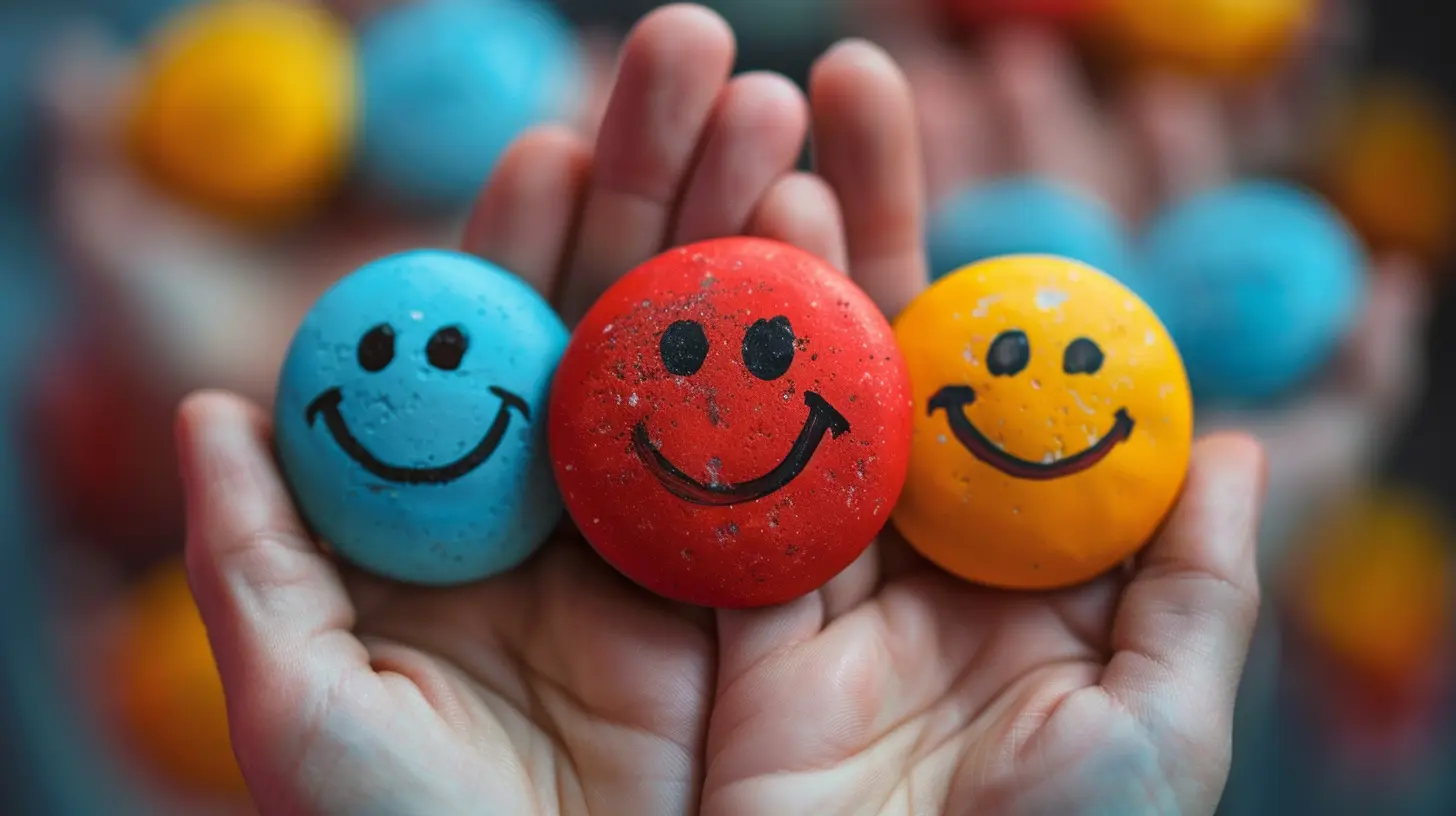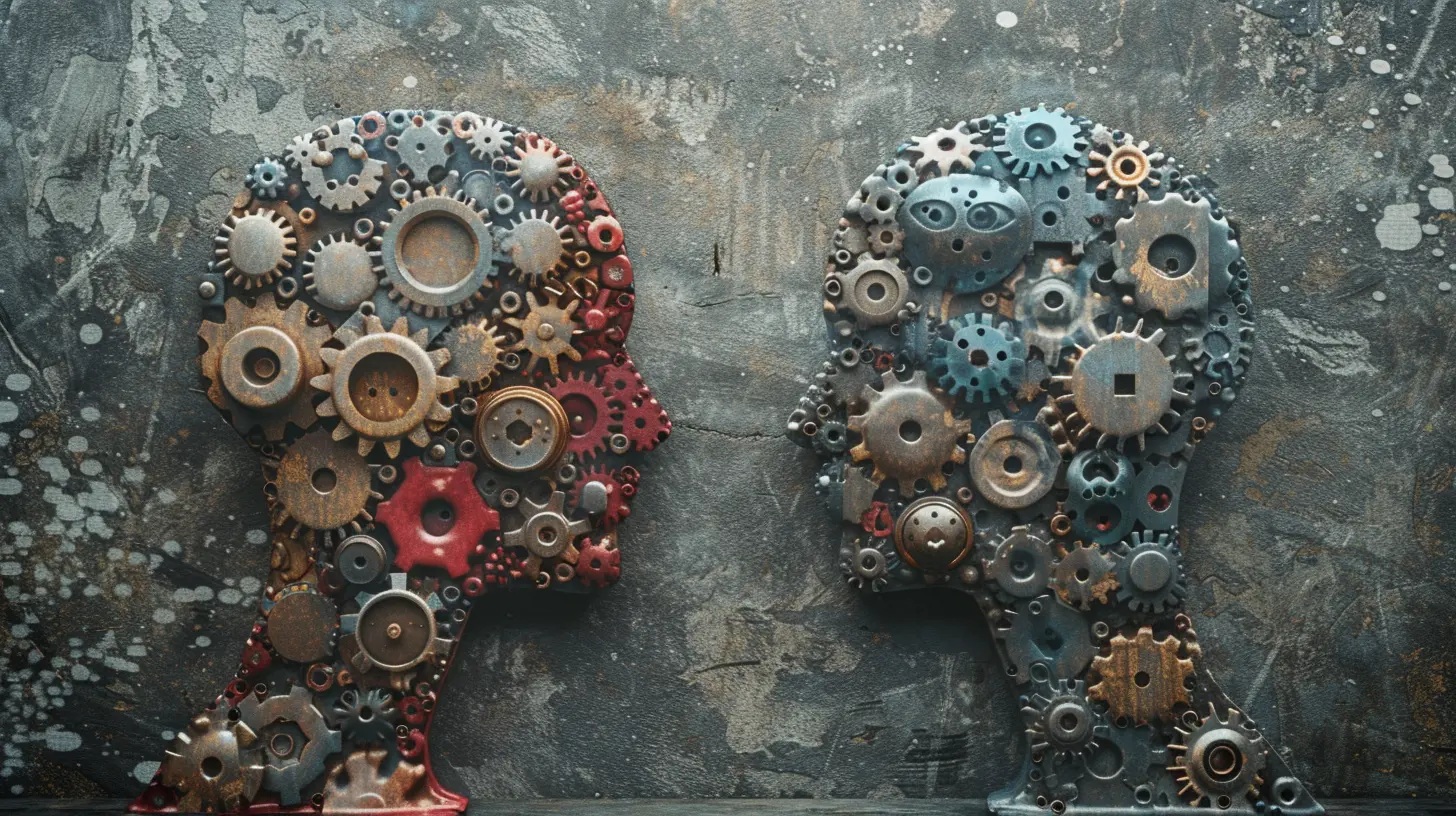The Link Between Positive Psychology and Emotional Intelligence
24 May 2025
Have you ever wondered why some people seem to handle life's ups and downs with ease while others struggle? A lot of it comes down to two powerful forces—positive psychology and emotional intelligence (EI). These two concepts are deeply connected, and when harnessed together, they create a roadmap for greater happiness, stronger relationships, and personal success.
Let’s dive into how positive psychology and emotional intelligence go hand in hand and why understanding their connection can be life-changing. 
What is Positive Psychology?
Positive psychology is all about focusing on what makes life worth living. Instead of only studying mental illness or emotional struggles, this field emphasizes human strengths, well-being, and happiness.Dr. Martin Seligman, the pioneer of positive psychology, introduced the PERMA model, which includes:
- P – Positive Emotions (Finding joy in the little things)
- E – Engagement (Being fully immersed in what you do)
- R – Relationships (Building meaningful connections)
- M – Meaning (Having a sense of purpose)
- A – Accomplishments (Achieving goals and feeling fulfilled)
At its core, positive psychology teaches us how to shift our mindset, amplify happiness, and build resilience. 
What is Emotional Intelligence (EI)?
Emotional intelligence, or EQ, is the ability to recognize, understand, and regulate emotions in yourself and others. Popularized by psychologist Daniel Goleman, EI consists of five key components:1. Self-Awareness – Understanding your own emotions
2. Self-Regulation – Managing emotional reactions appropriately
3. Motivation – Using emotions to fuel productivity and growth
4. Empathy – Understanding others’ emotions
5. Social Skills – Navigating relationships effectively
People with high emotional intelligence are better at handling stress, communicating effectively, and making thoughtful decisions. They don’t let emotions control them—they control their emotions. 
How Positive Psychology and Emotional Intelligence Connect
You might be wondering: “How do these two concepts work together?” The truth is, positive psychology and emotional intelligence are like two sides of the same coin.- Emotional intelligence helps you understand and regulate emotions.
- Positive psychology helps you cultivate happiness and optimism.
When combined, they create a powerful framework for mental well-being, resilience, and success. Let’s break down the connection even further. 
1. Self-Awareness and Positivity Go Hand in Hand
Self-awareness is a fundamental aspect of emotional intelligence. It involves recognizing your emotions and understanding how they influence your thoughts and behaviors.Positive psychology, on the other hand, encourages practices like gratitude, mindfulness, and self-reflection, which enhance self-awareness. The more you understand yourself, the easier it becomes to shift negative thoughts into positive ones.
For example, imagine you receive negative feedback at work. Instead of spiraling into self-doubt, self-awareness allows you to acknowledge your emotions, regulate them, and use the feedback as a learning opportunity.
2. Self-Regulation Leads to Emotional Resilience
Life isn’t perfect. Challenges and setbacks happen, but how we handle them makes all the difference.- Emotional intelligence teaches self-regulation—choosing how to react to emotions rather than letting them control you.
- Positive psychology promotes resilience—bouncing back from difficulties by fostering an optimistic mindset.
Together, these skills build mental strength, allowing you to overcome stress, anxiety, and negativity with greater ease.
Think of it like steering a car. EI helps you control the wheel, while positive psychology ensures you’re driving toward a meaningful and fulfilling destination.
3. Positive Psychology Enhances Motivation
One of the key elements of EI is intrinsic motivation, meaning you're driven by internal rewards rather than external validation.Positive psychology fuels this motivation by focusing on:
- Strengths-based development (acknowledging what you’re good at)
- Goal setting (creating meaningful objectives)
- Growth mindset (believing in the power of self-improvement)
When you embrace positivity, you're more likely to stay motivated, persistent, and passionate about your goals.
4. Empathy Strengthens Social Connections
Ever met someone who just "gets" you? Chances are, they have high EI and practice empathy, which is the ability to understand and share others' emotions.Positive psychology promotes empathy by encouraging strong, meaningful connections and kindness. It teaches that relationships are one of the biggest contributors to happiness.
When you blend EI and positive psychology, you become more compassionate, patient, and understanding—which helps in both personal and professional relationships.
5. Emotional Intelligence Supports a Growth Mindset
People with high EI understand that failures are not dead ends—they’re lessons. This aligns perfectly with the core principles of positive psychology, which emphasizes growth, learning, and self-improvement.Instead of fearing mistakes, you start seeing them as stepping stones toward success. Think of failure as a plot twist, not the end of the story.
Practical Ways to Apply Positive Psychology and EI in Daily Life
Understanding the connection between positive psychology and EI is great—but how do you apply it? Here are some simple, actionable ways:1. Practice Gratitude Daily
Gratitude rewires the brain to focus on positivity. Keep a journal and write down three things you’re grateful for every day.2. Develop Emotional Awareness
Check in with yourself. Ask:- How am I feeling right now?
- What triggered this emotion?
- How can I respond in a constructive way?
3. Use Mindfulness to Stay Present
Mindfulness helps regulate emotions and reduce stress. Take a few moments each day to breathe deeply, meditate, or engage in mindful activities like journaling or walking.4. Strengthen Relationships with Active Listening
When talking to others, listen to understand, not just to reply. This builds empathy and emotional intelligence while deepening relationships.5. Reframe Negative Thoughts
Instead of saying, “I failed,” try, “I learned something valuable.” Shifting perspectives can turn setbacks into stepping stones.6. Celebrate Small Wins
Acknowledging progress—even the tiniest achievements—boosts motivation and happiness.Final Thoughts
Positive psychology and emotional intelligence aren’t just fancy psychological terms—they’re essential tools for a fulfilling life. When you develop emotional intelligence, you learn to manage emotions wisely. When you apply positive psychology, you shape a mindset that fosters happiness and resilience.Together, they create a powerful formula for success, happiness, and mental well-being. So, why not start applying these principles today? A more positive and emotionally intelligent version of yourself is waiting!
all images in this post were generated using AI tools
Category:
Positive PsychologyAuthor:

Ember Forbes
Discussion
rate this article
3 comments
Zarenith Lozano
This article effectively highlights how positive psychology enhances emotional intelligence, fostering resilience and interpersonal skills, ultimately leading to improved mental well-being and stronger relationships. Insightful connections!
June 21, 2025 at 2:48 AM

Ember Forbes
Thank you for your insightful comment! I'm glad you found the connections between positive psychology and emotional intelligence valuable.
Helen McAnally
Exploring the synergy between positive psychology and emotional intelligence reveals how cultivating awareness and resilience can profoundly enhance our emotional well-being.
June 1, 2025 at 4:05 PM

Ember Forbes
Thank you! I completely agree—these elements work together to foster greater emotional health and resilience.
Signe McTier
This article brilliantly highlights how positive psychology and emotional intelligence intertwine, emphasizing that cultivating one can significantly enhance the other, leading to improved mental well-being and interpersonal relationships.
May 30, 2025 at 4:44 PM

Ember Forbes
Thank you for your insightful comment! I'm glad you found the connection between positive psychology and emotional intelligence compelling.



